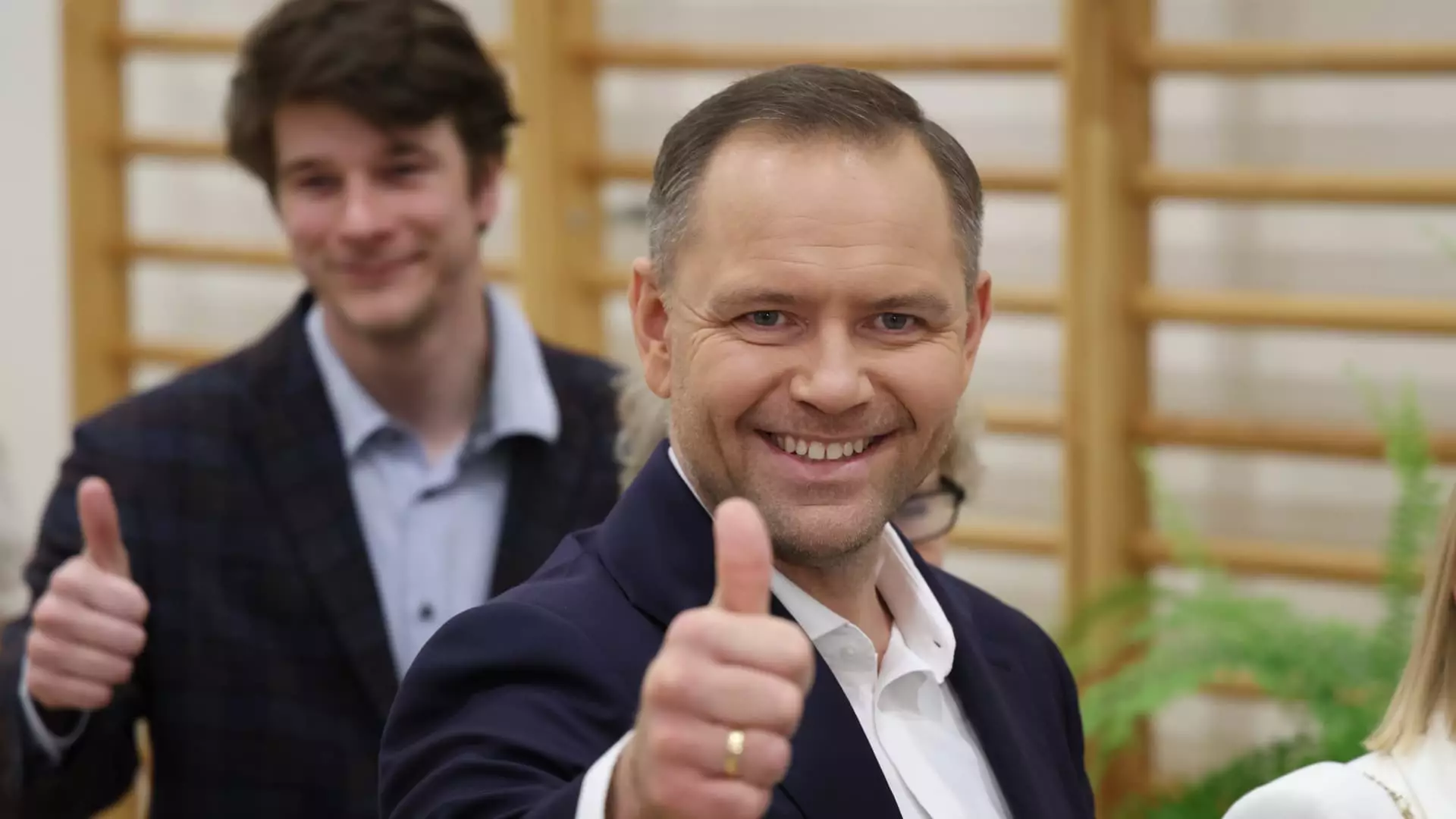The recent presidential election in Poland has ignited a fervent debate about the country’s political direction and its long-standing relationship with the European Union. With Karol Nawrocki at the helm, backed by the unwavering support of Donald Trump, Poland appears poised to pivot sharply away from its previous pro-EU stance. Nawrocki’s victory—narrowly secured with a slim margin—should raise red flags among those who advocate for democratic norms and unity in Europe. His election not only represents a loss for the ruling pro-European party but also signals an unsettling embrace of nationalism and populism that has gained momentum across the continent.
A key aspect of Nawrocki’s campaign was his emphasis on Polish sovereignty, positioning himself as a nationalist who aims to reclaim control from supranational bodies like the EU. Notably, his election underscores the fragility of democratic institutions in Europe, where public sentiment can be swayed by charismatic leaders promising to prioritize national interests above collaborative endeavors. The victory of Nawrocki, who garnered 50.89% of the votes, could suggest that Poland may veer towards isolationist policies, a stark contrast to the progressive momentum seen in other European nations like Portugal and Romania.
The Implications for EU Relations
The implications of Nawrocki’s presidency are vast and potentially detrimental to the cohesion of the European Union. The overwhelming support he received from Trump and the American conservative establishment raises questions about the geopolitical landscape. While the EU’s Commission President, Ursula von der Leyen, expressed confidence in ongoing cooperation with Poland, the reality remains that Nawrocki’s more Eurosceptic agenda could jeopardize the financial lifeline that Poland has relied on, especially after years of being labeled one of the EU’s significant beneficiaries.
The situation becomes even more precarious when considering that Nawrocki has already indicated a stark deviation from his predecessor, Andrzej Duda, who often acted as a moderate stabilizing force. The scope of the presidency in Poland is indeed limited compared to parliament; however, the power to veto legislation still grants immense influence over governmental reforms. As such, many fear Nawrocki could effectively stymie any remaining goodwill towards the EU, encouraging a fracturing of relationships that have only just begun to heal.
Populism and National Identity
The election results reflect a worrying trend towards right-wing populism that resonates with a growing base of disenfranchised voters across Europe. Nawrocki’s campaign strategically tapped into sentiments of national pride and skepticism toward globalization, which often serves as a rallying cry for those feeling left behind by the modern political landscape. His interactions with allies like U.S. Secretary of Homeland Security Kristi Noem depict a coalition that seems more inclined to rekindle the old nationalist ideologies rather than address pressing contemporary issues.
Nawrocki’s rhetoric criticizes international relationships, particularly by calling attention to alleged slights by Ukraine’s leadership towards Poland. This narrative not only shifts focus away from collaboration during a time of war but also imposes a divisive viewpoint that could lead to regional tensions. It risks undermining Poland’s contributions to collective security in Eastern Europe, where unity is paramount in the face of Russian aggression.
The Future of Progressive Politics in Poland
The election outcome poses a significant challenge for progressives in Poland and beyond. With Nawrocki’s ascent, the more liberal voices that have recently found success must grapple with a revitalized conservative movement that is adept at exploiting public fears and frustrations. The question arises: can progressives reorganize and energize their base in the face of such challenges, or will they become further marginalized by the rising tide of nationalism?
With the pressure on Poland’s political landscape intensifying, advocates for liberal democracy and EU integration must not only strategize but also engage effectively with the populace to reclaim the narrative. The road ahead is undoubtedly fraught with obstacles, but there is also a vital opportunity for renewal—a chance to underscore the values of cooperation, empathy, and shared prosperity that have historically underpinned European unity.


Leave a Reply